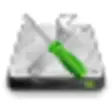Used Sync for Windows?
Editors’ Review
Launched in 2011, the Toronto-based Sync.com has steadily risen through the ranks to become a major provider of security-focused cloud storage; in 2017 alone, it roughly doubled its user base to about 450,000 business and personal accounts. You can get a 5GB account for free, and paid plans scale all the way up to 10TB at reasonable prices. But can it deliver better than the big players like Google, Microsoft, and Apple?
Pros
Truly private encryption: Google Drive, Microsoft OneDrive, and Apple iCloud all get a copy of the encryption keys for your cloud storage account. Among other things, this allows them to reset your password for you. But keys can get lost, stolen, traded, or sold without your knowing about it until much later. Law enforcement can also be granted access to your cloud storage, without your consent or knowledge. So in order for your files to be truly private when using cloud services, you have to encrypt the material yourself, which means yet another password to remember, for each file you encrypt. This can quickly spiral out of control, even with third-party tools.
By default, Sync keeps its hands off your encryption keys, so it can't get access to your files even if it wants to. However, you can set up a password hint, and you can even disable Sync's default encryption setup and use it like conventional cloud storage.
Meanwhile, Sync also supports app-based two-factor authentication (2FA) and SMS-based 2FA.
Using it is simple: For Windows, Sync is integrated kind of like an additional layer, rather than a regular desktop app. You get a special folder, and files you put there will automatically get copied into your cloud account, which you can access through a standard web browser or through its companion Android and iOS apps. When you right-click one of your files in this folder in Windows, you'll see two new items on the menu: "Create a link" and "Create an Enhanced Privacy link." This will be a URL that you can share with anyone, as with Dropbox.
The latter adds a second layer of encryption where the file is only decrypted on the recipient's device, though there are a few limitations as a result: According to the documentation, the file can't be larger than 500MB, and it can only be opened in Google Chrome, Mozilla Firefox, Microsoft Edge, or Internet Explorer 10+. Apple's Safari browser may work, but it's not fully supported.
When you right-click on a file that's not in this folder, you get the option to send it to your Sync Vault. This is a section of your cloud storage that does not automatically get synced to your other devices.
If you want to share your file with someone else, you log in to the website and set it up from there. The Sync app in your system tray will have a link to your "web panel," and there's also a Preferences menu where you can do things like change your password, manage how much Internet bandwidth the app uses, and monitor uploads and downloads.
Competitive pricing: If you need to upgrade from your free 5GB stash, you can step up to 500GB for $49 a year, 2TB (2,048 GB) for $96 a year, and 4TB for $180 a year. Microsoft OneDrive offers similar prices and throws Office 365 into the bargain, but it does not offer Sync's private encryption, and you may not need Office if you're already using Google Docs or LibreOffice. Sync doesn't offer monthly plans, but you can get a full refund if you cancel within 30 days.
And a paid account adds a lot more than just extra storage space. You also get multiple sharing folders on your PC, unlimited recovery of previously deleted files, priority customer support via email, and greater control of your shared links, such as: expiration dates, download limits, traffic stats, email notifications, and the ability for other people to add additional files to your link. Business-tier accounts can also provide HIPAA compliance and centralized administrator controls for billing, passwords, and provisioning.
A well-organized trove of customer support info: Your welcome email will contain a link to a 28-page PDF that explains pretty much every feature in plain English. There's also a link to a support portal, where you'll find pages that answer common questions, a search function, and a few support categories to browse through. It's all cleanly laid out with an abundance of visual aid.
Cons
Some site information may be out-of-date: It's genuinely difficult to find many faults with Sync.com, but as a fast-growing company, it can be a challenge to keep all of your documentation consistent. The 28-page PDF doesn't mention the Microsoft Edge web browser when discussing Enhanced Privacy links, and it says that Safari is incompatible with this feature. But the support page in question lists Edge as compatible, and it says that Safari may work but is not fully supported.
Bottom Line
With its private encryption, competitive pricing, well-organized support info, and cross-platform apps, Sync should be at the top of your shopping list for secure cloud storage.
What’s new in version 1.1.9-f16
- FIXED: Events sometimes being attributed to the wrong device on shares
- FIXED: Less likely to create conflict files
- FIXED: Network alarm less sensitive
- FIXED: Automatic recovery from local Sync database locking, errors or corruption
- FIXED: The mighty tilde (~) character supported in file names again
- FIXED: Various issues related to ._ files on external OS X volumes
- FIXED: Delayed file issues if third-party app reverted a file modification time on a file
- FIXED: Disk ID switching issues would cause Sync to hang
- FIXED: Some OS X language settings would cause install failure
- IMPROVED:Â Utilizes less CPU with large file sets (millions of files)
- IMPROVED:Â Less background scanning
- IMPROVED: Reduced the likelihood of folders coming back to life when deleting or renaming
Explore More

Lazesoft Disk Image & Clone Home
FreePCmover Professional
Paid
Lazesoft Data Recovery Home
Free20051228_0_D-503_USB_Driver.zip
Free
Aomei Dynamic Disk Manager Pro Edition
Trial version
DiskLED
Free
Lazesoft Windows Recovery Home Edition
Free
Usage Monitor
Freeinfinst_autol.zip
FreeD-Link DGE-530T Gigabit Ethernet Adapter
Free
SterJo Startup Patrol
Free
Free Android Data Recovery
Free